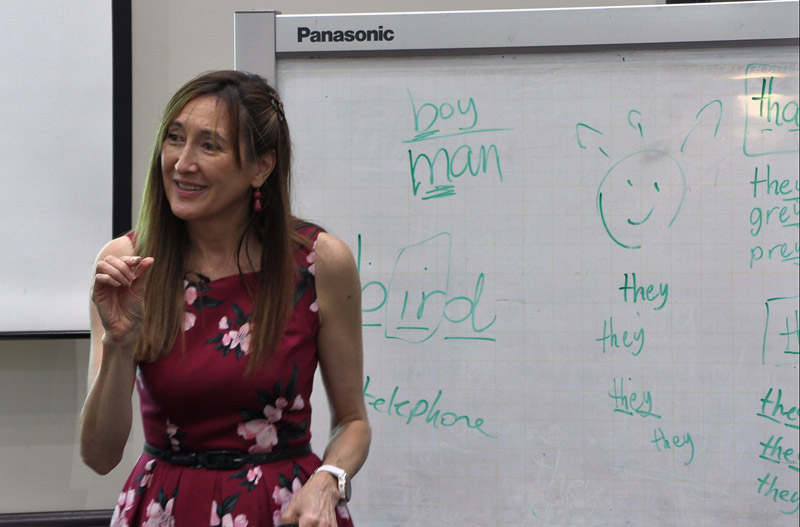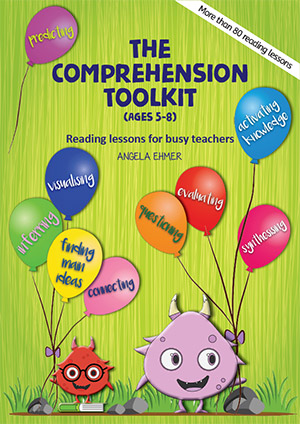Top 5 Reading Crimes Against Children
Would you agree that a love of reading is developed, not innate? If so, you are likely to actively nurture a love and appreciation of literature, knowing that it is advantageous to the learner and an integral part of successful literacy instruction.
Have you ever observed students as they listen to a practiced author or storyteller read aloud, ever engaging the audience, beckoning active engagement by baiting and hooking the listener as the story progresses and builds? ‘This is perhaps the reaction you get when you read aloud to your students.
If we do agree that we can build a love of reading by selecting great texts and reading these with passion and genuine interest, what are the practices that fail to foster positive attitudes to reading?
Reading Crime #1: Failure to inspire
If we lack passion, so do our lessons and our learners. Our most effective teachers of reading, inspire students to (want to) read. They set a purpose for reading, drive enthusiasm and encourage new ideas and big picture thinking.’ They teach students to love reading and the gains are significant:
- The desire to read increases if reading experiences foster enjoyment.
- It’s easier to teach reading when reading is valued.
- Good readers like to read! Developing an intrinsic desire to read must be a reading goal.
Reading Crime #2: Failure to consider the audience
Selecting texts based solely on what we like, may backfire. How many students have read volume after volume of an author or series, due to teacher preference? The importance of text selection is critical. Factors to consider may include:
- Will students engage with this text? How will I engage students with this text?
- What will this text offer students?
- How will the reading of this text be of benefit to students?
- What will students know or understand better as a result of this experience?
- What am I hoping or expecting to see as an outcome of reading this text?
Reading Crime #3: Failure to discuss
Reading is about understanding or interpreting the message. Interaction is critical to developing deeper understandings and therefore discussion is paramount. What are your thoughts about the following?
- Why should interaction occur?
- How frequently should we prompt for discussion?
- At what points is discussion most beneficial and sometimes critical?
- How do we encourage active participation?
- When is paired/small group/whole group interaction most effective?
- What factors do I consider when guiding the discussion?
- What supports do I provide to guide students to success?
Reading Crime #4: Failure to listen
What students might be thinking may be different to what they are able to articulate. Probe more deeply, explore reasons for thinking and be genuinely interested. Encourage reflection and be innovative in providing varied opportunities for reflection to occur.
Avoid sarcasm and discourage students from being sarcastic. Active participation is important; nothing shuts it down quicker than sarcasm.
Reading Crime #5: Failure to read to students
Reading aloud to students builds knowledge and increases understandings of different ways language is used to shape meaning. As students listen, they bear witness to new words, phrases and ideas, new ways to assemble words to make sentences and new ways to think about things, all within an authentic meaning-making context. Students hear how quality reading sounds, how the expert reader adapts the voice to enhance meaning and how the expert reader thinks about things in different ways, as the new information is synthesised.
And … reading to students sells reading. It builds a community of readers, creates shared experiences and unifies a group. It enables us to de-contextualise the world to those less experienced and provides an unending supply of hypotheticals for developing minds to ponder. And it’s fun!
What are the reading crimes that you’ve learned to avoid? Have you witnessed other reading crimes? Please share your feedback, thoughts and other reading crimes via comments.





My crime… failure to see that when kids point as they are reading, it actually helps to increase their reading speed…NOT be a hinderance.
Witnessed crime ….. teachers quickly reading a novel or stories to children without drama and or passion….. Children need to be mesmerised and engaged in and by the story being read to them.
As an ST:LaN coordinator I will share these at my next network meeting
My crime is not choosing a genre that the kids are interested in.
I agree wholeheartedly with your top 5. Most certainly I read with passion and expression and try to model good reading skills to my class. However, we can be limited to reading our class novels which can get quite dated, and unless their updated regularly, we can suffer the consequences.
I find that student’s passion for reading,especially for deeper comprehension, dampens if they lose confidence because they are not sure of or stumble when trying to pronounce unfamiliar words, especially in non-fiction but also when selecting or listening to higher level texts.
Explaining that this is not unusual, and that being able to pronounce correctly is not as important as understanding the meaning, really helps them remain keen and confident.
I agree with all of the pointers relating to the “Crimes”, but I have to admit my disappointment in the books being written for children today. I asked for help from the school librarian and the city librarian when I was choosing a book for my new class, an age group I had not taught for twenty- odd years. My request was that I wanted a book to inspire them but one that used good quality language and sentence structure. I feel it is important for students to experience high quality Language. What a disappointment! I was looking for books like “Master of the Grove”,or “Brother Knight”,by Victor Hellerher (now out of print) or “The Cay” by Theodore Taylor or “Spirit Wind” by Max Faxchan (Spelling?). All terrific stories, with great moral values, wonderful language and room for dramatization and great discussion.
My crime- asking students not to read aloud when the class is meant to be silent reading.Just cause I was used to reading silently! After learning more about “The Daily Five” I actually have this student read to small groups instead.